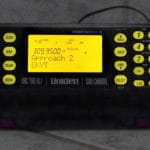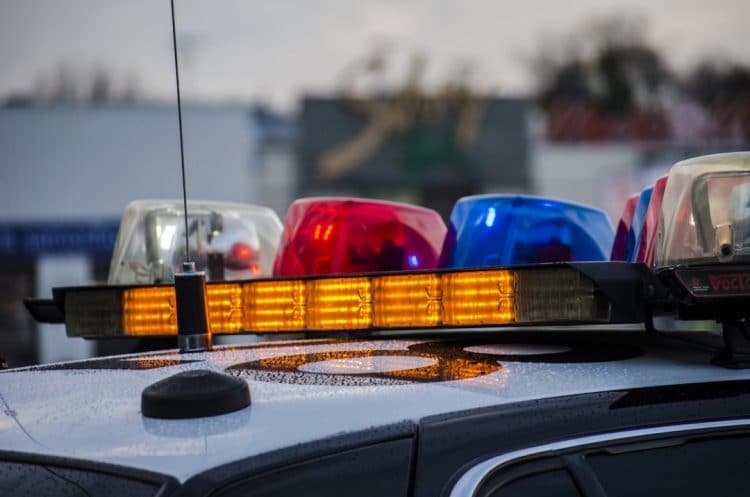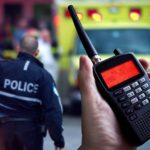If you want to be able to use your police scanner efficiently, then you will need to know a little bit about police scanner numbers. Don’t worry. We are going to walk you through absolutely everything that you need to know on this page!

What Are Police Scanner Numbers?
Your frequency numbers are nothing more than the police scanner frequencies that people are broadcasting on. If you want to listen in to a particular broadcast, then you will need to know the right channels to be searching for.
Remember; with a scanner, it is unlikely that you will be tuned in to one radio station at a time. It is right there in the name. This is a device that has been designed to scan various stations. If it picks up any sort of audio signal on a particular station, then it will let you listen in on it. If you do not have the right channels programmed into the device.
Police Channel Numbers Are Dependent On Location
This actually applies to all of the emergency services.
While there are some channels that are more frequently used than others, you do need to remember that frequencies can change from town to town. So a channel could work in your city, but you can head 20-30 miles down the road, and you will find that another channel is being used a whole lot more.
This is part of the reason as to why many of the more modern radio scanners will either have a GPS built into them or will allow you to insert your ZIP code. This way the scanner will know exactly which channels it should be going through. If it didn’t have this feature, then you would have to manually change the channel list every time you head somewhere new, which is inconvenient to say the list.
Police Scanner Channel Numbers Can Change Frequently
It is worth noting that channel numbers are not fixed. In fact, most emergency services will change their frequencies a couple of times each year. So, you may find a few channel numbers now, but we can’t guarantee that this is something that will work for you a couple of weeks down the line. If you have suddenly lost communication, then it is likely that the frequencies have changed.

It is also worth bearing in mind that a limited number of police departments will no longer broadcast on public channels. This is not something that we feel will ‘catch on’, because there are a ton of benefits to keeping communications open to the public. If this has happened, and you are active in the radio scanner community, then it is likely you will know well in advance whether the scanner numbers will become private. And, no, once the channels are encrypted, there is nothing you can do about it.
Update Your Police Scanner (If Possible)
Most modern police scanners will have a channel listed loaded into them. This means that when you turn on your device, it will automatically search for the local police channels (assuming there is some way in which you can tell it your location)
This, of course, means that the channel list will need to be updated regularly. As a result, manufacturers, and maybe the odd radio enthusiast or two, will be updating channel lists fairly regularly. Read through the manual that came with your scanner to discover how you can update your channel list and start to listen to those awesome police communications again.
Most of the time, this is going to be the simplest way to find out police channel numbers. If you can’t update the channels automatically on your scanner, then it may be high time to pick up a new scanner. Trust us. It is going to save you a whole lot of time.
Check the Police Department Website
While this is becoming increasingly rare, some police departments, particularly the smaller ones, may list their radio frequencies on their website. All you need to do is go through this list and add it to your scanner. A lot of the time, these lists will actually be updated a lot quicker than the channel lists that your scanner’s manufacturer pumps out.
If you can’t find a police scanner list of channels, then looking at a few local radio enthusiasts forums may provide you with all the information that you need.

Scan for Channels Manually
If you are lovingly clinging to your old device that can’t be updated automatically, then you may need to scan for channel frequencies on your own. This is a slow and laborious process. We wouldn’t wish it on our worst enemy. This would mean manually going through dozens of frequencies and listening to the broadcasts on them…if anything is actually happening. You then make a list of the channel numbers. Remember; this is a process that you are going to be repeating every few months. If you do this, you are going to be putting your life on hold. Seriously. It takes that long.
Use RadioReference.com
Luckily for those manual scanners, you do not need to do that. You only need to manually scan your channels if you want to punish yourself. Instead, you have some tremendous resources available to you online. Sites like radioreference.com are regularly updated by radio scanner enthusiasts just like yourself. They will have put in the hard work to find radio channels so you don’t have to.
Even if your scanner has an automatic update version, it is still worth checking out websites like this. This is because they will often include channels that your scanner’s manufacturer didn’t include on their device. This may mean military or government frequencies (open ones, only. You aren’t going to find out about the existence of aliens through your scanner!). If you can manually add them to your scanner, then you will be able to listen to so much more, and a lot of it is going to be a lot more exciting than some police frequencies.
If you do not have a police radio scanner, feel free to check out our reviews. We have a few reviews for both beginners and experienced radio users alike.



